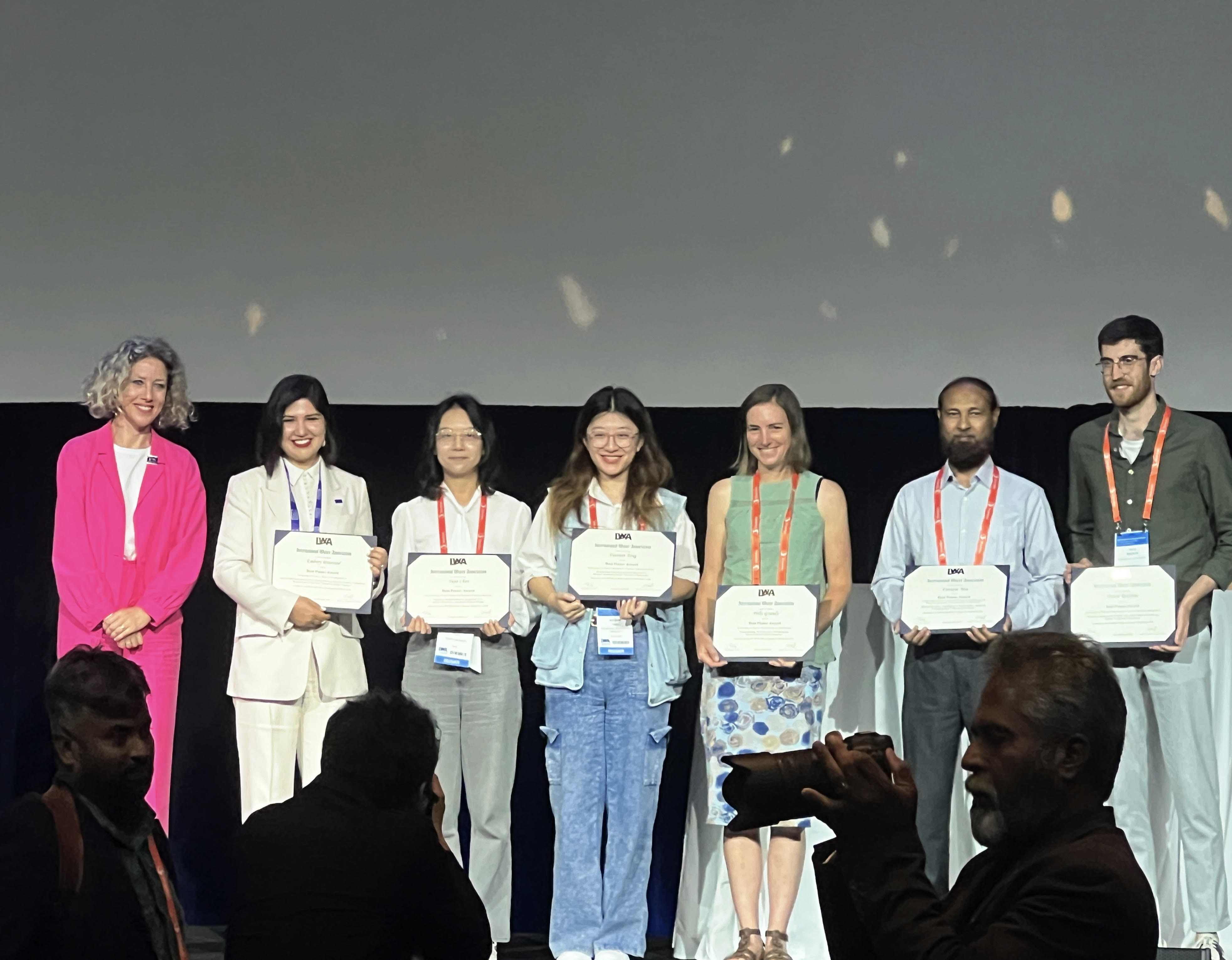Despite being a water-rich country, Canada faces increased fluctuations in freshwater supply, which harms access to clean, safe drinking water. Held in Toronto from August 11 to 15, the International Water Association’s (IWA) 2024 World Water Congress and Exhibition convened professionals covering the entire water cycle to collaborate to overcome these challenges in Canada and worldwide. For her study ‘Identification and Environmental Behavior of Bacteria-Associated Enteric Viruses in Wastewater,’ GW Engineering is thrilled to announce that environmental engineering Ph.D. student Xiaonan Tang received the event’s best poster award!
The bi-annual IWA World Water Congress and Exhibition changes geographic regions each time to explore water challenges and solutions specific to that area through technical site visits. In addition to those visits, this year’s program featured panel discussions, workshops, dedicated forums, and technical sessions to shape and enhance water management. Tang noted the event provided an invaluable platform for her to network with global leaders, exchange knowledge, and gain new insights into water environmental research and management.
Wastewater treatment is considered a solution for depleting freshwater, yet interactions between bacteria and viruses and how they affect the effectiveness of the disinfection process are often overlooked. Out of 400 poster presentations, Tang stood out for this award because she addressed this critical yet neglected aspect of wastewater treatment and demonstrated its importance by uncovering how certain bacteria can enhance the infectivity of specific viruses and shield them from the disinfection process.
In fact, Tang unveiled a previously unknown interaction between two common pathogens that pose significant risks to public health and current disinfection systems. This finding sheds light on novel mechanisms pathogens utilize to evade conventional treatments, emphasizing the need for innovative approaches to wastewater treatment. By offering both a scientific contribution and highlighting its practical implications, her presentation resonated with the conference’s theme, “Shaping Our Water Future,” as her study marks an important advancement in efforts to enhance disinfection processes, safeguard public health, and conserve water resources.
“Receiving this prestigious recognition is both an honor and a validation of my work. Personally, it affirms my dedication to addressing critical environmental challenges, while professionally, it opens up new opportunities for collaboration and further research. It motivates me to continue pushing the boundaries in finding innovative solutions to improve wastewater treatment and public health systems,” said Tang.


